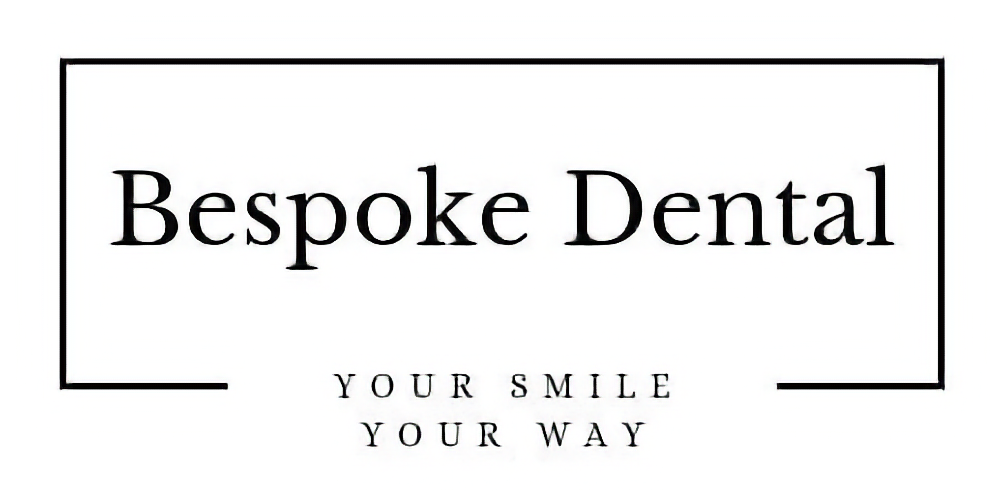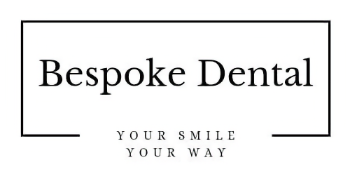Understanding Wisdom Teeth Removal Costs: What You Can Expect at Bespoke Dental

Planning for wisdom teeth removal is as much about finances as it is about care. This guide walks through the costs you’re likely to see in Lutz, FL — what drives price differences, how insurance usually responds, what uninsured patients can expect, and the payment options we offer. We explain key cost factors like impaction severity, anesthesia choice, imaging, and provider experience so you can understand how each one affects your out-of-pocket responsibility. You’ll also find practical insurance scenarios, tips to maximize benefits, example totals for one to four teeth, and clear notes on using HSAs/FSAs or financing. Read on for straightforward comparisons, quick FAQs, and next steps to schedule care.
What Factors Influence the Cost of Wisdom Teeth Removal?
Several predictable factors combine to set the final fee for a wisdom tooth extraction. The main drivers are impaction level, how many teeth are removed, the type of anesthesia used, any imaging required, and whether additional procedures are needed. Each factor changes the procedure time, the equipment and staff involved, and therefore the fees you’ll see on an estimate. Knowing these drivers helps you compare quotes and understand why a single-tooth case can look very different from a full four-tooth surgery. The sections below break down tooth type and anesthesia, then tie those elements to typical cost ranges.
How Does the Type and Number of Wisdom Teeth Affect Pricing?
Pricing depends greatly on whether a tooth is a simple eruption or an impacted tooth that requires surgery. A single, fully erupted tooth removed under local anesthetic is quick and generally sits at the low end of per-tooth costs. Soft-tissue or bony impactions often require flap work, bone removal, and sutures — which add time, supplies, and post-op care, increasing the price. Removing multiple teeth can reduce the incremental cost per tooth, but the overall bill still reflects the total surgical complexity. For example, two impacted lower molars that need bone removal will usually cost more than four routine erupted extractions done under local numbing because of the surgical steps involved.
Before we compare anesthesia options, it helps to see how impaction types translate into practical budget planning.
Common combinations of impaction level and tooth count predictably shift expected costs.
How Much Does Wisdom Teeth Removal Cost with Dental Insurance?
If you have dental insurance, your final out-of-pocket cost depends on coverage percentage, whether your deductible is met, plan annual maximums, and if your provider is in-network. Most plans apply a deductible and then pay a percentage of an allowed fee until an annual maximum is reached. Submitting pre-authorization and accurate diagnostic codes can speed claims and reduce surprises; confirming in-network status before scheduling usually lowers your share. The sections below outline typical coverage behavior and give practical steps to get the most from your plan.
Knowing how dental insurance works — and its limits — helps you avoid unexpected bills. Coverage gaps and timing issues can push care off until problems become more complex and costly.
Dental Insurance and Economic Impact on Oral Health
Access to regular dental care affects overall oral health. Gaps in coverage and economic downturns can delay routine care, which may lead to more complex, costly problems later. This review looks at oral health outcomes following periods of economic stress, with reference to trends observed after the 2007–2009 Great Recession.
The Effect of Dental Insurance Coverage and Economic Fluctuations on Oral Health Outcomes in the United States, 2024
What Percentage of Wisdom Teeth Removal Does Insurance Usually Cover?
Coverage varies by plan, but many policies pay roughly 50–80% of an allowed charge after the deductible for procedures deemed medically necessary or performed by a surgical specialist. The exact percentage depends on plan terms, whether the extraction is coded as simple or surgical, and whether you’ve already reached your annual maximum. Pre-authorization for surgical codes can help secure higher coverage, while elective procedures may get less support. Understanding these distinctions makes it easier to estimate your realistic out-of-pocket responsibility.
Research shows that wisdom tooth extractions can represent a substantial cumulative cost for privately insured patients, which is why knowing your plan details matters.
Wisdom Tooth Extraction Rates in Insured Patients
Estimated cumulative incidence and cost patterns for wisdom tooth extractions among privately insured U.S. patients highlight the importance of understanding coverage limits and plan language.
Estimated Cumulative Incidence of Wisdom Tooth Extractions in Privately Insured US Patients, AR Schroeder, 2011
To improve how your insurance covers a procedure, request pre-authorization and confirm whether your surgeon is in-network before scheduling.
How Can You Maximize Your Dental Insurance Benefits for Wisdom Teeth Extraction?
You can reduce out-of-pocket costs by taking a few administrative steps and timing your care wisely. Start with pre-authorization and provide clear diagnostic images and notes that justify surgical coding when appropriate — insurers are likelier to cover procedures labeled medically necessary. Choose an in-network oral surgeon when possible to benefit from negotiated fees. If timing allows, schedule procedures around benefit-year resets or coordinate family coverage to make the most of combined annual maximums. Finally, use HSA or FSA funds for eligible expenses and keep receipts for reimbursement.
Key actions to lower OOP costs are pre-authorization, using in-network providers, timing around benefit years, and leveraging pre-tax accounts.
- Request pre-authorization with supporting imaging and clinical notes before surgery.
- Verify in-network status so you can access negotiated fee schedules.
- Schedule procedures strategically within your benefit year to maximize coverage.
These steps reduce surprises and increase the likelihood that your insurance will cover a larger share of the cost.
What Are the Typical Costs for Wisdom Teeth Removal Without Insurance?
If you don’t have dental insurance, costs are best represented as ranges that reflect simple extractions up to surgical removals for impacted teeth. Uninsured pricing typically includes the surgeon’s fee, facility use, anesthesia, imaging, and follow-up visits. Listing per-tooth ranges and example totals for 1–4 teeth gives a realistic budgeting view and shows how complexity and sedation choices push a case toward the higher end. The sections that follow summarize average per-tooth ranges and explain why professional care can be the most cost-effective choice in the long run.
What Is the Average Price Range for Simple vs. Impacted Wisdom Teeth Extraction?
Simple erupted extractions generally sit at the low end of per-tooth ranges because they require less surgical work. Impacted surgical extractions are higher because bone removal, suturing, and longer operating time add cost. For planning, we present bands rather than fixed prices to account for individual case variability and local market differences. Example totals for removing all four teeth highlight how mixes of simple and impacted teeth affect the final bill and help patients decide whether financing or savings are needed before treatment.
Why Is Professional Care Important Even Without Insurance?
Choosing an experienced oral surgeon reduces the risk of complications such as infection, nerve injury, or retained roots — problems that can be far more costly to treat later. Specialists use diagnostic imaging and surgical planning to map nerves and sinus anatomy, lowering the chance of unexpected complications and follow-up surgeries. Professional postoperative care and appropriate prescribing further reduce emergency visits and speed recovery. Viewed over time, investing in skilled surgical care often protects both your health and your wallet.
There has been debate about routine removal of third molars and whether some extractions are unnecessary. That discussion underscores the importance of individualized evaluation and conservative decision-making when possible.
Cost Containment for Third Molar Extractions and Insurance
Some analyses argue that many third-molar removals are performed before clear clinical need, which contributes to high cumulative costs for payers and patients. Overuse and exaggerated difficulty claims have been raised as issues, and unnecessary surgery carries risks like jaw fracture or permanent numbness. This paper discusses policy options to limit payment for nonessential extractions and related overcharges.
Containing the cost of third-molar extractions: a dilemma for health insurance, 1983
Understanding the long-term value of skilled surgical care leads naturally into the payment and financing options that make that care accessible.
What Payment and Financing Options Does Bespoke Dental Offer for Wisdom Teeth Removal?
Bespoke Dental offers several third-party financing partners and flexible payment options to help patients manage the cost of wisdom teeth removal. We work with CareCredit, Cherry, Sunbit, Alpheon Credit, and LendingClub — each provides different repayment structures so you can find a plan that fits your credit situation and timeline. We also accept HSA and FSA payments for eligible procedures, making it easy to use pre-tax funds. If you want to discuss options, we’re happy to walk through them when you book an appointment online or call the office.
How Do CareCredit, Cherry, Sunbit, Alpheon Credit, and LendingClub Help Manage Costs?
Each financing partner has a different approach: some offer promotional no-interest periods, others provide fixed-term loans with predictable monthly payments, and several focus on quick, point-of-sale approvals for healthcare purchases. CareCredit often provides promotional interest-free plans for qualifying balances; LendingClub offers fixed-term personal loans; Sunbit, Cherry, and Alpheon Credit typically promote quick decisions and easy point-of-sale checkout. Applications usually involve a soft or hard credit check, a short online or in-office process, and fast responses for most applicants.
Can You Use HSAs or FSAs to Pay for Wisdom Teeth Removal?
HSAs and FSAs commonly cover medically necessary dental procedures, including wisdom teeth removal. You can pay with an HSA/FSA card at the time of service or pay up front and submit receipts for reimbursement. Eligible expenses typically include surgery fees, anesthesia, and diagnostic imaging when they are part of necessary oral surgery, but you should confirm specifics with your plan administrator. Keep itemized receipts and clinical notes that document medical necessity to streamline reimbursement.
Knowing the documentation your plan requires makes pre-tax accounts a practical way to reduce out-of-pocket cash needs.
Why Choose Bespoke Dental and Dr. Tarik Elmohd for Your Wisdom Teeth Removal?
At Bespoke Dental, Dr. Tarik Elmohd and our team combine personalized care with modern diagnostics and comfort-focused options like IV sedation when appropriate. Dr. Elmohd is a board-certified oral surgeon whose specialized training supports predictable outcomes and strong safety protocols for complex extractions. We use up-to-date imaging to plan each case, which reduces complication risk and helps avoid unexpected costs. If you’d like a consultation, we’re ready to help — schedule online or call the office to talk through your options.
What Expertise Does Dr. Tarik Elmohd Bring as a Board-Certified Oral Surgeon?
Dr. Tarik Elmohd’s board certification reflects advanced training in surgical technique, airway and bleeding management, and complex extraction planning. That expertise shows up in thorough pre-operative evaluation, precise intraoperative technique, and clear postoperative instructions — all of which help reduce complication rates and the need for follow-up interventions. Patients with impacted teeth or challenging anatomy benefit from a surgeon experienced in interpreting advanced imaging and executing surgical workflows. These credentials help balance cost, safety, and predictable outcomes.
Surgeon-led care lowers complication risk and supports a smoother recovery, which protects both your health and the value of your treatment.
How Does Bespoke Dental Ensure Comfort with IV Sedation and Personalized Care?
We offer IV sedation for patients who need deeper sedation than local anesthesia or oral medications. IV sedation is administered and monitored by trained staff with protocols in place to ensure safe delivery and recovery. Our personalized care model includes a pre-op consultation to review medical history, assess sedation suitability, and plan post-op support so you know what to expect. Monitoring during sedation and clear discharge instructions reduce the chance of adverse events and help you return to normal activities safely. When used appropriately, IV sedation improves comfort for anxious or complex cases while keeping safety front and center.
Comfort-focused measures like IV sedation, combined with individualized planning, help patients tolerate procedures with confidence and predictable recovery.
What Are the Most Common Questions About Wisdom Teeth Removal Costs?
Patients often want to know the cost to remove all four wisdom teeth, whether insurance will cover the procedure, and what the least expensive safe options are. Short, practical answers help people compare estimates and plan next steps. Below are focused responses to common questions, along with sensible tips for managing cost responsibly in Lutz, FL. If you’d like to discuss specifics, we’re here to help — schedule online or call the office.
How Much Does It Cost to Remove All Four Wisdom Teeth at Bespoke Dental?
The cost to remove all four wisdom teeth varies with impaction and anesthesia. Four simple erupted teeth under local anesthesia sit near the low end of aggregate ranges; four impacted teeth requiring IV sedation and surgical access fall toward the high end. Because every case is different — CBCT imaging, extra surgical time, and prescribed medications all affect the final charge — we give ranges rather than single prices. A consultation with diagnostic images and an itemized estimate is the best way to know what your case will cost and whether financing, HSA/FSA funds, or insurance pre-authorization are needed to cover the balance.
Understanding the main cost drivers helps you interpret a personalized estimate and choose the right payment path.
Is Wisdom Teeth Removal Covered by Insurance and What Are the Cheapest Options?
Many insurance plans cover a portion of medically necessary surgical extractions after a deductible, but coverage is not guaranteed. Out-of-network care and elective procedures often receive lower reimbursement. The most affordable responsible choices are to use an in-network oral surgeon, schedule within a benefit year that maximizes remaining coverage, use HSA/FSA funds when available, and consider short-term financing if necessary. Avoid lowest-cost options that compromise safety; financing and pre-tax accounts can help you access specialist care without sacrificing quality.
Smart planning — pre-authorization, choosing an in-network provider, and layering payment options — keeps care affordable while protecting clinical safety.
1. Checklist to prepare before a surgical extraction appointment:
- Confirm insurance pre-authorization and in-network status.
- Have HSA/FSA details and your preferred payment method ready.
- Arrange transportation and post-op support if IV sedation is planned.
2. Key warning signs that an extraction should be performed by a specialist:
- Imaging shows bony impaction or proximity to nerve structures.
- Previous failed extractions or unusually complex root anatomy.
- Significant anxiety or medical conditions that require advanced sedation and monitoring.
3. Simple steps to reduce out-of-pocket cost responsibly:
- Verify benefits and remaining annual maximums before scheduling.
- Request an itemized estimate to compare financing needs.
- Use HSA/FSA funds when eligible and consider short-term financing for the remaining balance.
If you have questions or want a personalized estimate, we’re here to help — schedule online or call the office.
Conclusion
Knowing what affects wisdom teeth removal costs helps you make informed choices about treatment and payment. By factoring in insurance coverage, financing options, and the value of a board-certified oral surgeon, you can approach care with clarity and confidence. When you’re ready to move forward, schedule your appointment — we’ll tailor care to your needs and help you plan the best path forward.





